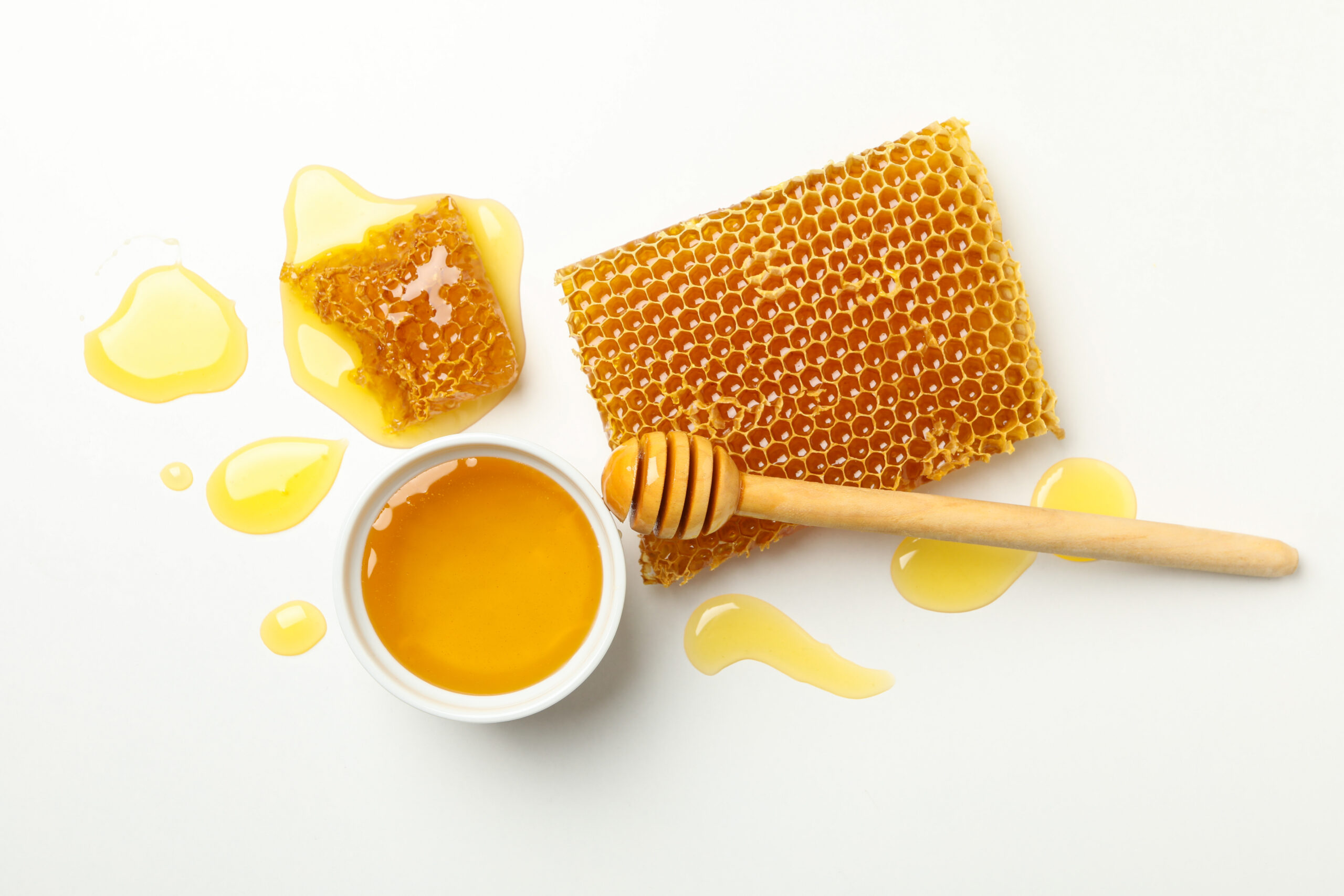Honey is a well-known miracle weapon against colds, inflammation of the throat and difficulty falling asleep – we already know this from our childhood. But this household remedy can do much more! Honey can strengthen the immune system, support liver functions and even detoxify. In recent years, the secrets of the golden viscous substance have been investigated. In the following, we take a closer look at the ingredients of honey and tell you about three medicinal uses for it at home.
What is honey and what is in it?
Honey consists of sugar, fructose or glucose. Honey also contains important minerals such as potassium, calcium, magnesium, iron and vitamins B1, B2, B3, C, B5 and B6. Conventional honey is therefore a real vitamin bomb! It also contains small amounts of copper, iodine and zinc.
Why is honey so healthy?
The bees add certain enzymes when processing their honey. These then cause a change in the sugar spectrum. The enzyme is permanently converted to disinfectant hydrogen peroxide. Inhibitors are formed. These substances in honey have an antibiotic effect and inhibit different types of bacteria, germs and yeasts from growing. It is assumed that water is withdrawn from the bacteria, which ultimately ‘dries out’ and thus dies. Over 50 types of bacteria can be defeated in this way. Nowadays, honey is even used in modern medicine. But be careful! The healing effect of honey is lost at over 40 degrees Celsius! In the following, we will give you three examples of how you can use honey medicinally at home.
Honey for colds and pharyngitis
It is widely known that honey can provide relief from aches and pains such as sore throats, coughs and colds. You can dissolve honey in tea for this purpose. But be careful! Make sure that the honey is only added to the already cooled, lukewarm tea, as the healing effect of the honey is cancelled out at over 40 degrees Celsius! If you prefer milk, you can also drink lukewarm milk with honey to relieve your symptoms. Alternatively, you can take the honey with a spoon and let it melt slowly on your tongue.
Honey for minor wounds of the skin
Honey can help to relieve pain and speed up the healing process of minor superficial cuts or abrasions due to its antiseptic properties. It also reduces swelling and secretion. But beware! Please note that purulent or deep wounds are NOT suitable for self-treatment with honey. In such cases, it is better to consult a doctor or a pharmacy. Special products from the pharmacy, which are prepared and absolutely germ-free, may be suitable in such cases.
Honey for stomach and intestinal complaints
For stomach and intestinal complaints, a lukewarm tea with honey sometimes helps, just as it does for cold symptoms. Here you can also make use of the positive properties of individual soothing teas. Chamomile, fennel, caraway or peppermint teas are particularly suitable for stomach complaints. Here, too, you can have lukewarm milk with honey as an alternative – but it would be better to have tea, as it is easier to digest. Again, please note that the honey should only be added after the drink has cooled down, otherwise the effect may be lost.
Would you have known?
Bees are truly industrious little helpers. To produce 500 grams of honey, bees fly to over 7 million flowers. The bee is thus also indispensable for the pollination of our flowering plants. But the bee is threatened by bee extinction and thus very much worth protecting! After all, almost 30 per cent of our daily food depends on the work of bees!
Conclusion
Honey is and remains a great and effective home remedy! If you want to do yourself some good, you can always resort to it, but care should always be taken when tempering honey! When using honey as a home remedy for babies, please consult a doctor. In case of serious complaints, please always consult a doctor or pharmacist!

